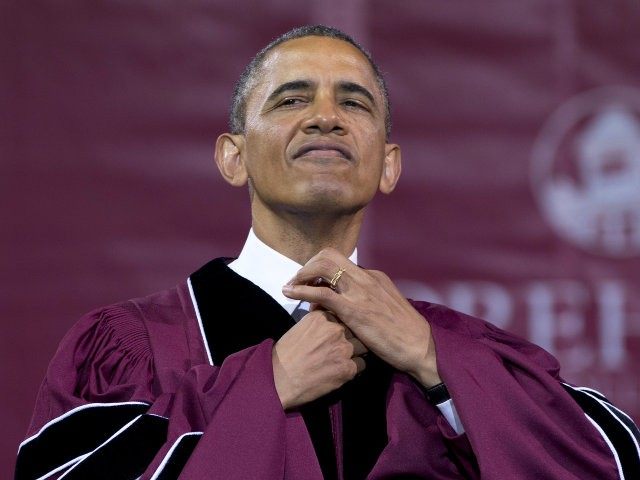As President Obama expresses his desire to further increase the federal government’s role in education, the education leader of a prominent black pastor’s organization tells Breitbart News more federal government is not what lower income and minority students need. Instead, parents and strong communities – such as the kind that existed before integration – are what will sustain student achievement.
Obama announced Friday that he wants to see universal, free community college for every American who desires it. Some 75 percent of the costs would be paid for by the federal government and 25 percent by states. According to USA Today, Obama will discuss his plan in detail during his State of the Union address on January 20.
But Dr. Deborah De Sousa Owens, education leader at the Coalition of African-American Pastors (CAAP), tells Breitbart News that though all students are entitled to a fair and equal education, money, quality teachers, and curriculum are not the primary elements in student achievement.
“While these components are critical, without strong parental and community involvement, increasing and sustaining student achievement is highly unlikely,” she said. “Students must be able to make positive connections in the school setting, community setting and, of course, at home.”
“Neighborhood schools before integration worked well because students made important connections with the school family and their community, despite the access and equity issues of the day,” Owens observes.
“Since the 1983 seminal report A Nation at Risk, which revealed the dismal state of our nation’s education system and placed an emphasis on accountability, there has been a push to increase student achievement in our nation,” she continued. “However, the increased accountability and the ‘governing’ of education has placed an undue burden on teachers and schools and has shifted the focus to a one-size-fits all approach to education.”
Owens added that while accountability is needed in education, the national discussion is missing the most important piece – “parents and communities.”
“Schools can’t do it alone. It is going to require parents and communities engaged in the education process for students to succeed, especially for low-income students,” she asserted. “It is not the role of the federal government to ‘govern’ what’s best for schools around the nation.”
Owens believes education decisions about student achievement should be made at the local level, where parents and communities can have an impact.
“At the end of the day, it is parents and communities who really help students, especially low-income students succeed in school and life,” she said. “To say that the federal government is more concerned or knows more about what’s best for my child’s education than I do is absurd and an insult.”
“We don’t need the federal government heavily involved as the major player in education,” Owens added. “What we need are more educational options for families and a concerted effort to involve more churches and community members in the education of students, particularly low-income students.”

COMMENTS
Please let us know if you're having issues with commenting.